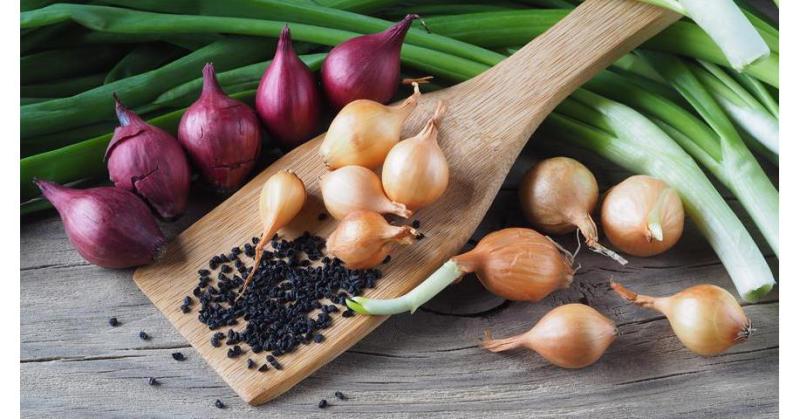Onion seeds hold a crucial place in agriculture due to the widespread cultivation of onions, which are among the most commonly consumed vegetables worldwide. These seeds are the foundation of onion production, determining not just the yield but also the quality and resilience of onion crops. Over recent years, the onion seeds market has undergone significant transformations influenced by technological advancements, changing consumer preferences, and heightened demand for sustainable agricultural products. The ongoing globalization of agriculture has further propelled the market, with farmers seeking improved seed varieties that promise higher productivity and disease resistance.
One of the prominent trends influencing the onion seeds market includes the increasing adoption of hybrid seeds, known for their superior traits compared to open-pollinated varieties. Hybrid onion seeds often provide better uniformity in size, longer shelf life, and enhanced resistance to common pathogens that affect onion crops. Advances in biotechnology have enabled seed producers to develop onions suited to various climatic zones, allowing for expansion in regions previously unsuitable for large-scale onion farming. Additionally, organic onion seed varieties have garnered attention due to the rising consumer demand for organic produce, pushing seed companies to invest in research focused on non-GMO and organic certification-compliant seeds.
Factors Influencing Demand and Supply Dynamics of Onion Seeds
The demand for Onion Seeds is largely dictated by agricultural cycles, global consumption patterns of onions, and the expansion of horticulture in emerging economies. Onion is a staple ingredient in numerous global cuisines, thus maintaining a steady demand for quality seeds. The supply side experiences fluctuations influenced by seed production capacities, climatic conditions, and regulatory frameworks for seed quality and trade. Increasing urbanization and lifestyle changes have led to diversification in onion varieties, such as red, white, and yellow onions, which impacts the seed varieties in production and distribution.
Technological integration has also optimized seed supply chains, enabling better storage, packaging, and distribution practices that minimize post-harvest losses and maintain seed viability. Market players invest heavily in seed testing and certification activities to assure farmers of seed germination rates and purity. Geographic factors notably affect regional seed demand: countries with large agricultural landholdings and favorable growing conditions consume more seeds, while emerging regions show potential for growth due to modernization efforts and governmental support for agribusiness development.
Navigating Market Intelligence for Onion Seed Industry Insights
In-depth analysis and up-to-date market intelligence reports focused on the onion seed industry provide valuable strategic insights for stakeholders ranging from farmers to seed manufacturers and investors. These reports typically cover competitive landscape evaluations, emerging technological trends, regulatory challenges, and consumer behavior analytics. Accessing such comprehensive market research allows interested parties to monitor product innovations, track pricing trends, and understand regional demand-supply imbalances.
Clients seeking detailed, data-driven insights may explore specialized market intelligence repositories that offer segmented studies by seed type, application, and geographic regions. Industry forecasts embedded within these insights help project future growth trajectories, identify opportunities in emerging markets, and assess potential risks from environmental or policy changes. Navigational tools integrated within these research platforms enable users to tailor their queries for specific information about seed production volumes, import-export statistics, and key market players, facilitating informed decision-making backed by robust data.
Commercial Aspects and Trends in Onion Seed Sales and Distribution
The commercial landscape of onion seeds is characterized by a blend of traditional seed suppliers and modern agritech companies leveraging digital platforms to reach end-users. Seed sales channels include wholesale distributors, retail outlets, and increasingly, e-commerce platforms that enhance accessibility for small-scale farmers and home gardeners. The availability of onion seeds online has broadened the market reach, driven by market demand for convenience and competitive pricing.
Pricing strategies in this sector are influenced by seed quality, brand reputation, and the inclusion of value-added services such as agronomic support and crop advisory. Commercial agreements often involve licensing arrangements between seed breeders and distributors to access proprietary hybrid or genetically enhanced seed lines. Furthermore, trade policies, import tariffs, and phytosanitary regulations significantly impact cross-border trade flows of seeds, shaping pricing and availability in various regions.
The integration of precision farming techniques has encouraged the bundling of seeds with technologies like seed coating and controlled-release fertilizers, enhancing commercial appeal and customer satisfaction. Seasonal demand spikes correspond to planting calendars in major onion-producing countries, prompting suppliers to optimize inventory management and promotional activities accordingly. Staying abreast of consumer preferences and agricultural trends remains critical for commercial success in the competitive onion seed market.
Transactional Considerations for Procuring Quality Onion Seeds
Purchasing onion seeds involves several transactional considerations such as seed certification, quantity, price negotiation, and supplier credibility. Farmers and agricultural businesses prioritize seeds that conform to national agricultural standards and certifications to ensure authenticity and high germination rates. Bulk procurement demands thorough vetting of suppliers to mitigate risks associated with seed quality and delivery timelines.
Digital procurement platforms have revolutionized transactional processes, offering detailed product descriptions, customer reviews, and transparent pricing models that empower buyers to make well-informed purchases. Payment options and return policies also play a critical role in transactional satisfaction, as they provide security and flexibility to buyers dealing with perishable agricultural inputs.
Contractual agreements may include clauses concerning seed performance guarantees and after-sales services like cultivation guidance. Additionally, buyers evaluate the provenance of seeds, especially when seeking organic or non-GMO variants, to align with regulatory and market compliance. The transactional framework surrounding onion seed procurement continues to evolve with technological advancements and shifting market dynamics, underscoring the importance of robust supplier relationships and reliable market information.
Get this Report in Japanese Language: タマネギ種子市場
Get this Report in Korean Language: 양파 씨앗 시장
About Author:
Money Singh is a seasoned content writer with over four years of experience in the market research sector. Her expertise spans various industries, including food and beverages, biotechnology, chemical and materials, defense and aerospace, consumer goods, etc. (https://www.linkedin.com/in/money-singh-590844163)
